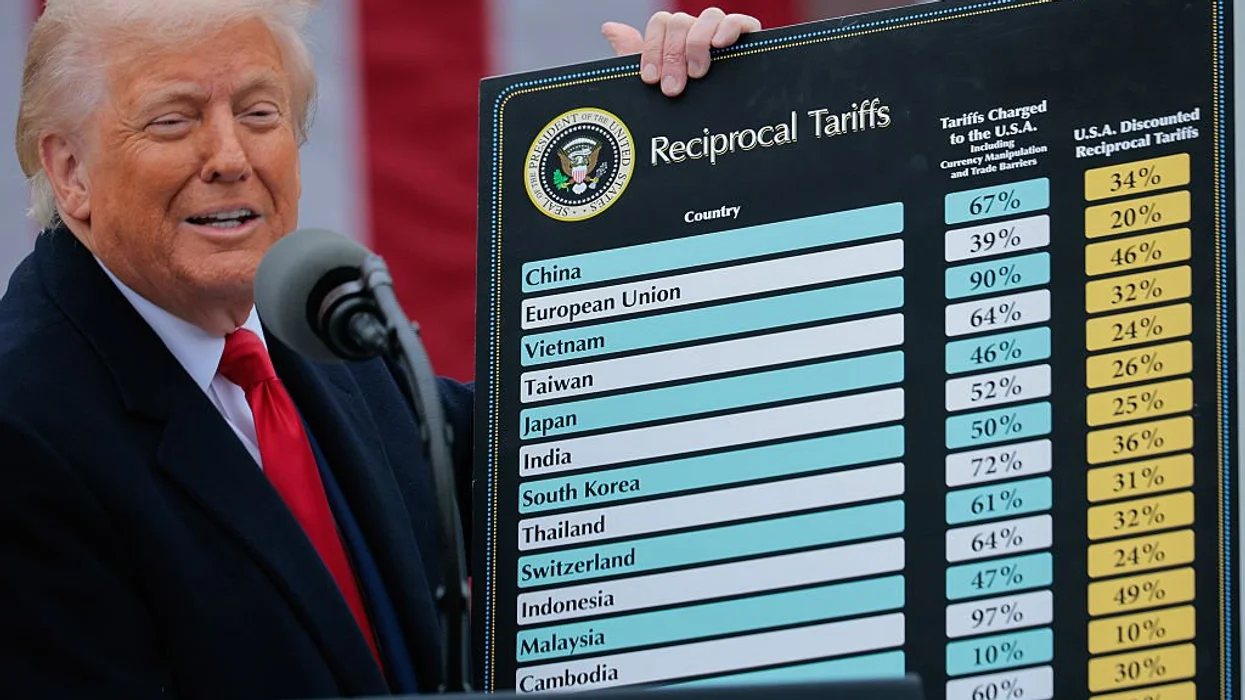
© 2025 Blaze Media LLC. All rights reserved.
Seems Like There Is a New Gov't Surveillance Story Every Day -- Here's an Update on One That Has Privacy Advocates Troubled
May 10, 2013
"...potentially opens the door to troubling government misuse of new technology."
 (Image: Shutterstock.com)
(Image: Shutterstock.com)
There's been a lot of talk lately regarding the FBI's proposal seeking to require companies to create a way for law enforcement to intercept online communications for investigations. But another bit of technology the bureau has used in the past to track suspects, which some question the legality of, has made its way into the news again.
The technology is a Stingray, or an IMSI catcher, which acts like a cell tower, tricking cellphones to connecting to a fake network and allowing law enforcement to track a device's location.
An Arizona court denied a request to suppress evidence gathered by such a device in a case of identity theft by suspect Daniel David Rigmaiden.
Wired has the reasoning behind the judge's ruling to allow the evidence:
In his ruling, U.S. District Judge David Campbell based his decision on whether Rigmaiden had a reasonable expectation of privacy in the use of the air card inside his apartment, as well as in the apartment itself and the storage unit that was discovered through the search of the apartment.Judge Campbell concluded that Rigmaiden did not have a reasonable expectation of privacy in any of these because he had obtained the air card and rented the apartment and storage space through fraudulent means — that is, using identifications that he had stolen from other people.
Campbell wrote that even if Rigmaiden had a subjective expectation of privacy in these items, “the Court cannot conclude that his expectation is one society should be prepared to recognize as objectively reasonable.”
Rigmaiden is accused of purchasing the wireless internet card and maintaining it through a Verizon account under a stolen identity in 2006. He is also suspected of opening a Visa credit card under the name of a dead individual. With this card he purchased a laptop on which he used the wireless card to file fraudulent tax returns, Wired reported. In addition, he allegedly rented an apartment under the name of a dead individual as well.
Stingrays are usually used with cellphones. The wireless card was not a phone but used cell towers to access the Internet much like a cellphone would. Wired reported that the FBI had Verizon reconfigure the card to answer secret calls made from an FBI landline so they could find its location.
Rigmaiden believes the evidence obtained through the use of the stingray should not be allowed as it involved a search of his apartment without a warrant. The government's actions to track Rigmaiden were done with a court order, which privacy advocates say is not enough, citing a need for a warrant.
With regard to the judge's decision, the ACLU of Northern California stated that it "trivializes the intrusive nature of electronic searches and potentially opens the door to troubling government misuse of new technology."
Part of the issue privacy advocates have with the use of stingrays to track location -- aside from advocating the need for a warrant -- is that it traces not only the suspect but whomever else is in the area on the same network.
"This means that when the government uses a stingray to conduct a search, it is searching not only the suspect, but also tens or hundreds of third parties who have nothing to do with the matter. When the FBI sought court permission to use the device to locate Mr. Rigmaiden, it didn’t explain the full reach of stingrays to the court," the ACLU's Linda Lye wrote.
The ACLU explained further that if the government suspected a criminal lived in a 100-unit apartment, they would need to get a search warrant from the court to search all 100 units.
"Law enforcement should be held to the same standard when they conduct electronic surveillance," Lye wrote.
Judge Campbell disagreed, saying in his ruling that the intrusion was not a "severe intrusion."
“The evidence in this case suggests that Defendant used the aircard and laptop computer to perpetrate an extensive scheme of fraud through electronic communications. The Court cannot conclude that the government’s corresponding use of electronic communications to find the aircard violated any legitimate expectation of privacy," he wrote.
Addressing the ACLU's stance that when requesting a court order to use the technology, the government didn't explain how it would work -- that it would pick up information from other third parties in the area as well -- Campell said it was “detail of execution which need not be specified.”
Rigmaiden is expected to go to trial later this month, according to Wired.
--
Related:
- Should Law Enforcement's 'Stingray' System Track You Without a Search Warrant?
- 'Stingrays': A New Law Enforcement Tool to Hunt Terrorists or Trample the 4th Amendment?
- All that 'Anonymous' Cellphone Tracking Data Can Actually Identify You
Featured image via Shutterstock.com.
Want to leave a tip?
We answer to you. Help keep our content free of advertisers and big tech censorship by leaving a tip today.
Want to join the conversation?
Already a subscriber?
more stories
Sign up for the Blaze newsletter
By signing up, you agree to our Privacy Policy and Terms of Use, and agree to receive content that may sometimes include advertisements. You may opt out at any time.
Related Content
© 2025 Blaze Media LLC. All rights reserved.
Get the stories that matter most delivered directly to your inbox.
By signing up, you agree to our Privacy Policy and Terms of Use, and agree to receive content that may sometimes include advertisements. You may opt out at any time.





